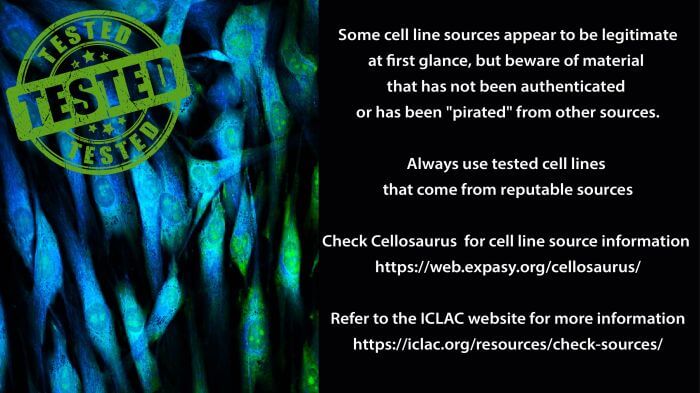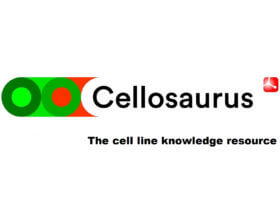Good science is important
On the world wide web, authorized sources offer human cell lines that may be used as model systems for addressing specific scientific questions.
Such authorized sources offer unambiguous proof of the authenticity of these cell lines via STR profiling or other appropriate methods, in accordance with global standards.
Data reproducibility is important
A project is at risk if secondary sources (e.g. colleagues in neighboring laboratories) are relied on to supply cell lines because such cultures have an increased incidence of cross-contamination and other quality problems [Drexler et al. 2017].
On the other hand, more and more “pirate” cell stores and suppliers are appearing and circulating cell lines without authorization, licenses, or evidence of quality/authentication.
Quality control is important
Cell lines sourced from “pirate” organizations have passed through an uncertain chain of custody that remains hidden from the customer’s point of view.
Distribution may violate licensing agreements made with the original laboratories in which the cell lines were established.
Caution is advised when it is discovered that a “pirate” organization has copied cell line information verbatim (including descriptions or test data) from official suppliers or that a label from the original supplier has been tampered with, overlabeled, or rendered illegible.

Action is important
Such concerns can be addressed by:
- Contacting the originator or the originating institution to verify if they know a legitimate source of the cell line;
- Contacting the original source of cell line information or labeling to ask if the use is lawful;
- Obtaining cell lines only from cell repositories or suppliers known to be reputable with respect to certification or use of international standards;
- Using the Cellosaurus knowledge resource to look up specific cell line information [Bairoch 2018] or contacting the major international cell banks directly to identify legitimate sources of a particular cell line.
When procuring a cell line from a cell repository or supplier, it is important to be confident that it is a reputable source that can demonstrate ISO-9001 certification (i.e., evidence of quality management systems) and uses globally recognized standards.
Contact Us if you have queries or concerns about cell line sources.
References
Bairoch A (2018). The Cellosaurus, a knowledge resource of the cell line. J Biomol Tech 29: 25-38. doi: 10.7171/jbt.18-2902-002. PMID: 29805321.
Cellosaurus website
Drexler HG, Dirks WG, MacLeod RA, Uphoff CC (2017). False and mycoplasma-infected leukemia lymphoma cell lines: Time for a reassessment. Int J Cancer 140:1209-1214. doi: 10.1002/ijc.30530.
Journal website
















